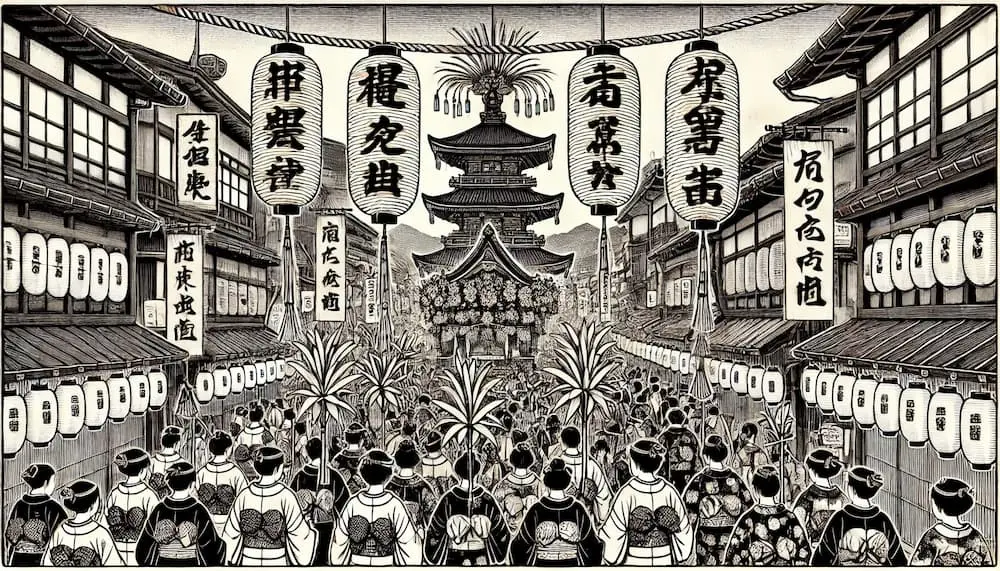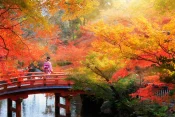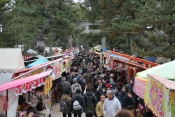Discover the Vibrant Toka Ebisu Festival in Osaka
Osaka is a city that never sleeps, buzzing with life, culture, and history. Among its many traditional festivals, the Toka Ebisu Festival stands out as a vibrant celebration that draws in thousands of visitors every year. If you’re planning a trip to Japan, experiencing this unique festival should definitely be on your list.
What is the Toka Ebisu Festival?
The Toka Ebisu Festival, also known as Ebessan, is a three-day event held every January from the 9th to the 11th. It is dedicated to Ebisu, the god of prosperity and good fortune, who is particularly revered by merchants and businesspeople. The festival dates back to the 10th century and is a testament to Osaka’s deep-rooted cultural traditions.
Highlights of the Toka Ebisu Festival
One of the main attractions of the Toka Ebisu Festival is the Fukusasa, or lucky bamboo branches, which are decorated with various charms to bring prosperity for the coming year. Visitors eagerly purchase these branches, believing they will bring good fortune to their businesses. The festival is held at several shrines across Osaka, with the Imamiya Ebisu Shrine being the most famous.
The atmosphere is electric, with around a million people attending over the three days. The streets around the shrines are lined with food stalls, offering everything from traditional takoyaki to sweet treats. The energy is palpable, with chanting, drumming, and lively performances filling the air.
My Personal Experience at the Toka Ebisu Festival
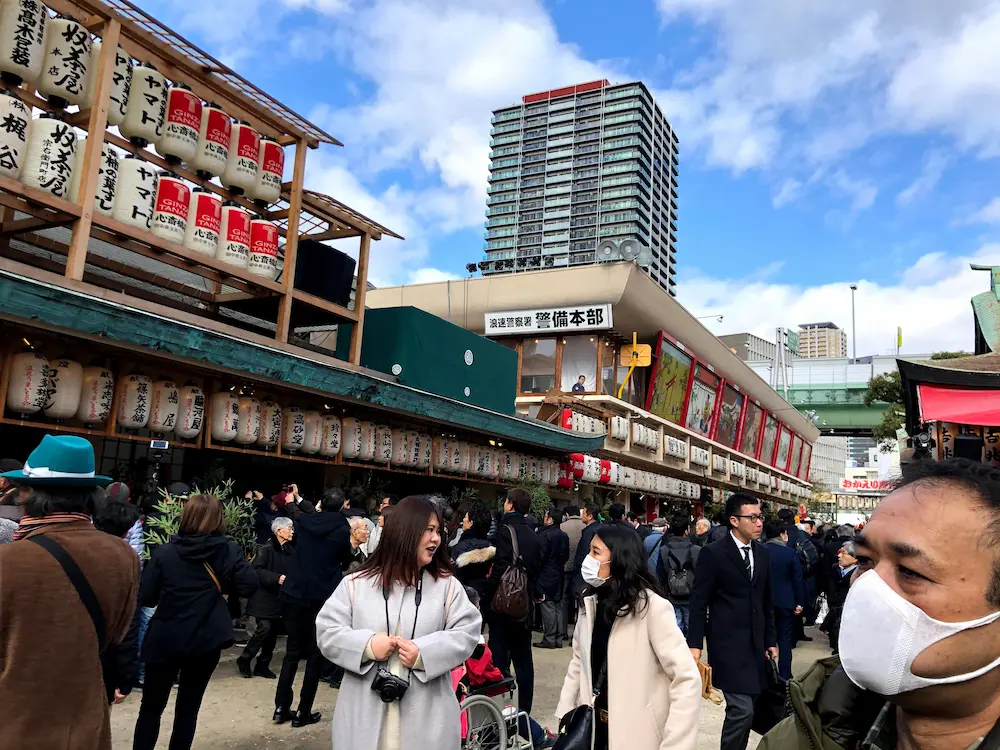
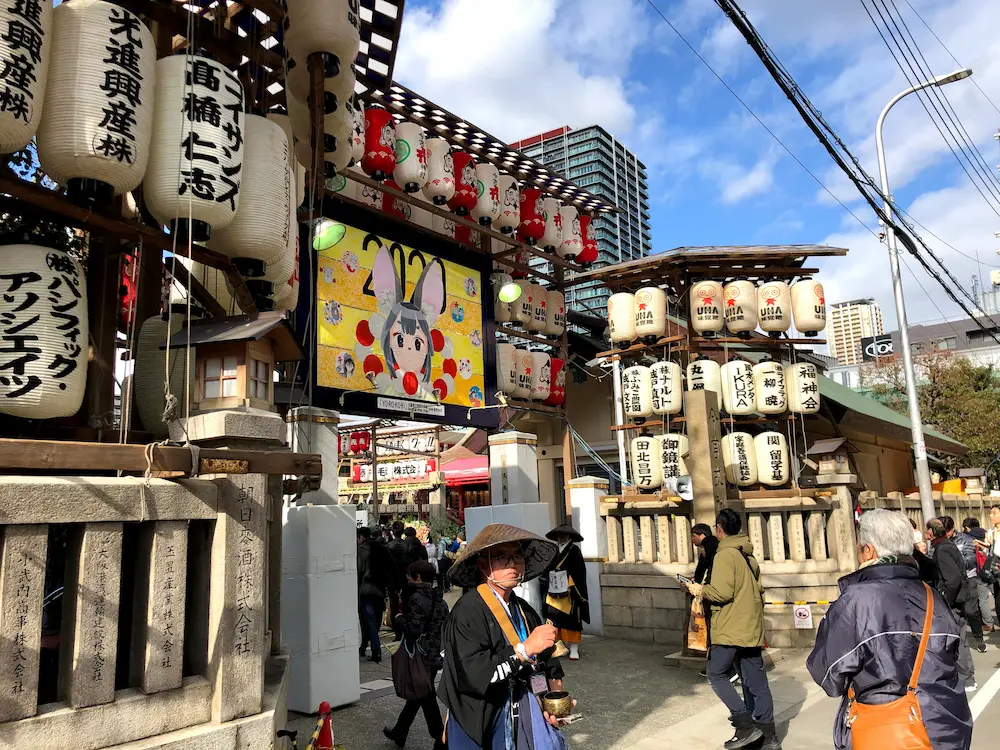
When I first visited the Toka Ebisu Festival, I was amazed by the sheer number of people. It felt like the entire city had gathered to celebrate. The crowd was bustling, and the air was filled with excitement and the sounds of vendors calling out to attract customers. The sight of people carrying Fukusasa branches, decorated with colorful charms, was truly unique.
The shrine area was surrounded by various stalls selling local delicacies, toys, and souvenirs. It was like a mini carnival. I remember trying different street foods and being impressed by the variety and quality. The experience was both overwhelming and exhilarating, a perfect blend of tradition and festivity.
Tips for Visiting the Toka Ebisu Festival
If you’re planning to visit the Toka Ebisu Festival, here are some tips to make your experience more enjoyable:
- Best Time to Visit: The festival can get extremely crowded, especially in the evenings. Try to visit early in the morning to avoid the largest crowds.
- What to Wear and Bring: Dress warmly as January in Osaka can be quite cold. Comfortable shoes are a must as you’ll be walking a lot.
- Getting There: The Imamiya Ebisu Shrine is easily accessible by train. It’s a short walk from the Ebisucho Station on the Sakaisuji Line or the Daikokucho Station on the Midosuji Line.
- Nearby Attractions: While you’re in the area, consider visiting the nearby Tsutenkaku Tower or taking a stroll through the bustling Shinsekai district.
Why You Shouldn’t Miss the Toka Ebisu Festival
The Toka Ebisu Festival is more than just a traditional event; it’s a celebration of prosperity, community, and the vibrant culture of Osaka. It offers a unique opportunity to experience local traditions, enjoy delicious food, and immerse yourself in the lively atmosphere of one of Japan’s most dynamic cities. If you’re planning a trip to Japan, make sure to add the Toka Ebisu Festival to your itinerary. You won’t regret it!
Conclusion
In summary, the Toka Ebisu Festival is a must-see event that perfectly captures the spirit of Osaka. From the historical significance to the vibrant celebrations, it’s an experience that stays with you long after you’ve left. Don’t miss the chance to be part of this wonderful tradition and witness the true essence of Osaka’s culture.
